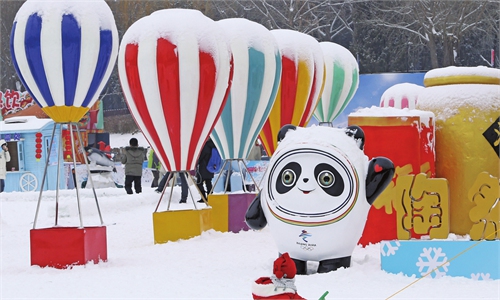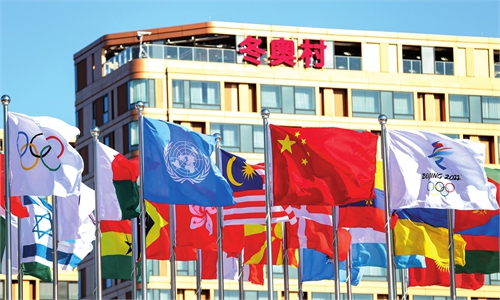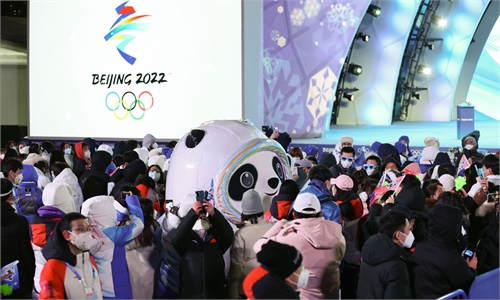SPORT / OLYMPICS
Athletes from China’s Xinjiang region call for Western media to focus more on competitions than political hyping
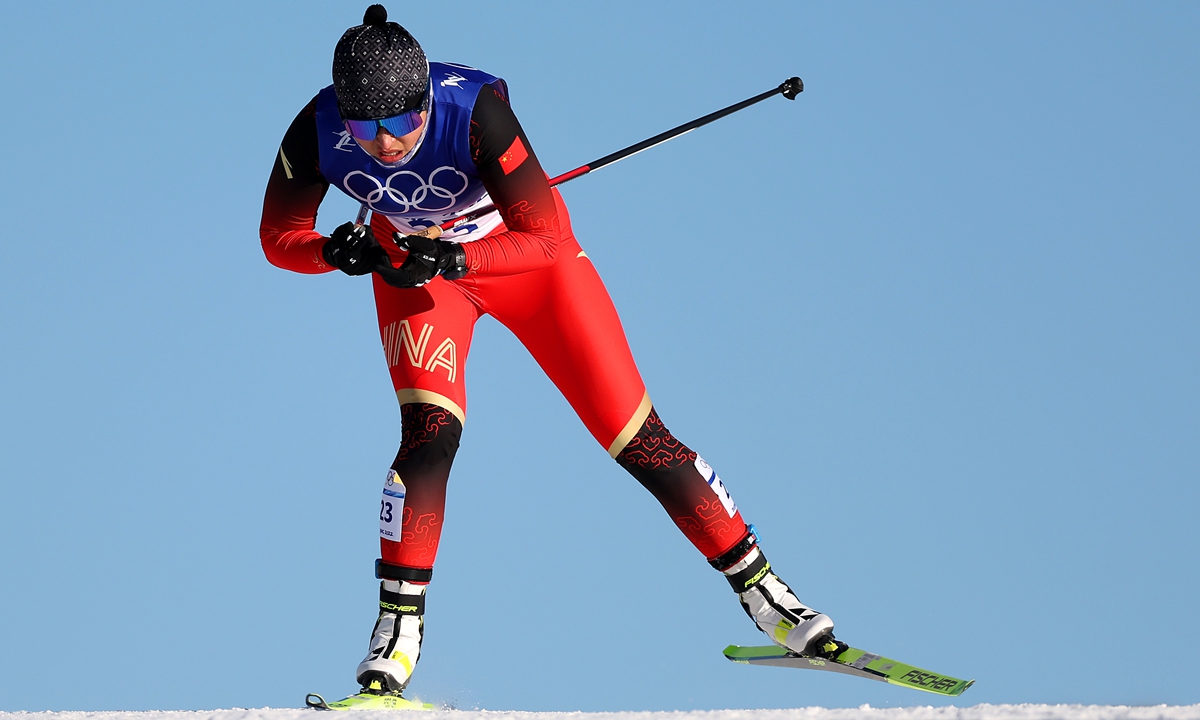
Dinigeer Yilamujiang of Team China competes during the women's cross-country sprint free qualification at Beijing 2022 on February 8, 2022 in Zhangjiakou, Hebei Province. Photo: VCG
Editor's Note
From the very beginning of the Beijing 2022 Winter Olympics, and even long before it started, the US-led West has been hyping about topics centering on China's Xinjiang region. The moment when Dinigeer Yilamujiang, an athlete from the Xinjiang region, appeared at the opening ceremony, delivered the final leg of Olympic flame and lit the Olympic cauldron with another athlete Zhao Jiawen was categorized by Western media as "propaganda."
Global Times reporters Liu Xin and Fan Lingzhi had exclusive interviews with two athletes from the Xinjiang region - Dinigeer and Bayani Jialin - to talk about the recent reports from Western media centering on them or on Xinjiang in Northwest China and learned about their response.
In the interview with the Global Times (GT), Dinigeer said that those who claimed she did not pass through the mixed zone after her competition may "not even know my face." She also condemned the groundless hyping of rumors from the West, saying it had affected her teammates.
GT: Can you please introduce yourself? The Wall Street Journal said in a report that you "disappeared" after the opening ceremony. What did you do after the opening ceremony?
Dinigeer: My name is Dinigeer Yilamujiang and I am a cross-country skier. I come from Altay prefecture of the Xinjiang region (in Northwest China). I am 20 years old. I first learned about skiing in 2012 and started training in 2015. In 2017, I joined the cross-country skiing team of Xinjiang.
For the past few days, I was busy training and preparing for my competitions. No athlete wants to be in the "spotlight" all the time, especially when she or he is focusing on the competitions.
This is my first time to participate in the Winter Olympic Games and I cherish this opportunity and only want to focus on the Games, instead of being distracted by other things.
GT: When did you know that you had been chosen as the last-leg torchbearer? How did you prepare for it?
Dinigeer: I got the message half a month before the opening ceremony. And when I was told that I was one of the final-leg torchbearers, I was so excited. A series of questions jumped in my head after learning the news: What should I do? How to light the flame? I dreamed about the moment of lighting the final flame every night after having gotten the message.
I didn't know the Olympic cauldron could be lit in such an innovative way. That memorable moment when I lit the flame will stay with me forever.
GT: The New York Times claimed that you did not want to be interviewed after the competition on February 5 and said this was in violation of the rules of the International Olympic Committee. Is this true?
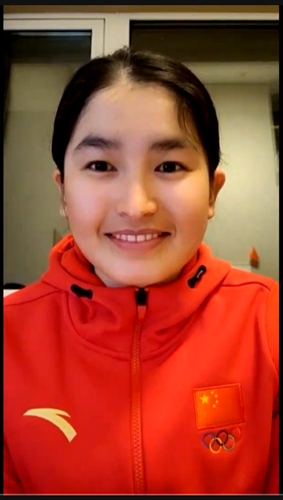
Dinigeer Yilamujiang Photo: Screenshot from her interview with GT
Dinigeer: It is not true. There were working staff guiding us to pass through the mixed zone. I did not know why the newspaper said I did not pass the mixed zone. I walked with my teammate Bayani Jialin. Those who claimed I did not pass the mixed zone may not even know what I look like.GT: Some Western media said choosing you to light the Olympic cauldron is a "riposte" to the West. The White House spokesperson said that choosing a Uygur athlete could not divert the attention from China's "violations of human rights and genocide." What's your response?
Dinigeer: As an athlete for the Winter Olympics, I have every right to be chosen as a torchbearer. I don't know why choosing me is a "riposte."
As an athlete, I don't want to talk about politics, but some Western media's irresponsible reporting severely affected me and my teammates. Since I was born and grew up in Xinjiang, I must respond. If there is what the West claimed to be "genocide," my teammate and I would not have had the chance to appear at the Olympic Games.
I wish the Western media could focus more on the Games and stop spreading rumors that have denigrated and disrespected us.
GT: Why do you think you were chosen as the final torchbearer?
Dinigeer: Choosing me as one of the torchbearers displays the truth about the harmony of the big Chinese family. Moreover, (during the opening ceremony) the Olympic flame had been passed from older-generation athletes to younger ones and then to me, which delivers the message of carrying forward the Olympic spirit from generation to generation.
And we know that my hometown - Altay prefecture in the Xinjiang region - is the origin of skiing and it is rich in snow resources. I would love to take this opportunity to invite more people to ski in my hometown and invite more young athletes to join the winter sports.
GT: Since you have attended many competitions overseas, how do you evaluate the organization and the facilities of the Beijing Winter Olympic Games?
Dinigeer: I had competed in many places in the world and this time we participated in the Olympics at home. I think all the facilities are of high standards and I am also very proud that we have such good venues for competitions and accommodation.
GT: Do you have any expectations for your performance at this Winter Games?
Dinigeer: I did not get ideal results in competitions in the previous days. I had had high expectations for myself and hoped that I could break our country's record in my field but it was a pity that I had not realized that goal. But this is my first time to participate in the Winter Olympics and I am enjoying it now!
